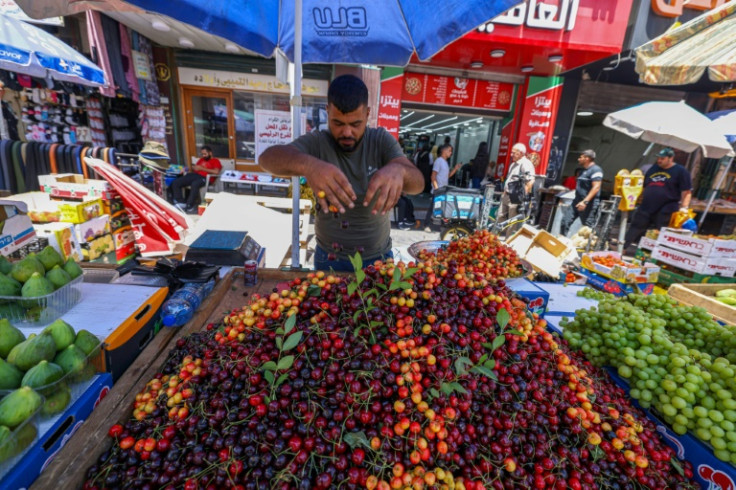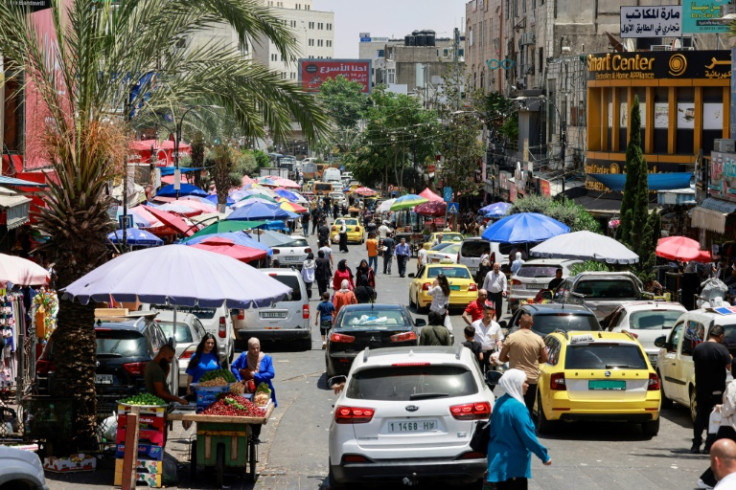
Palestinian teenagers bounced on trampolines and jumped through hoops inside a towering tent on the outskirts of Ramallah, the financial hub of the occupied West Bank.
But the circus students weren't the only ones bending over backwards in the pavilion: the school's director faced financial hurdles to buy the tent from Europe and trampolines from Asia.
"We are suffering with international payments," said Mohamad Rabah, head of the Palestinian Circus School, describing a bureaucratic process that could delay equipment delivery by up to a month.
Banking in the Palestinian territories is challenging, with the Palestinian Authority (PA) under scrutiny for potential terror financing, hindering transactions.
Israel has occupied the West Bank since 1967, with strong economic ties allowing two Israeli lenders to serve as correspondent banks in the Palestinian territory.
But this may change if Israel's far-right Finance Minister Bezalel Smotrich carries out threats to sever a vital banking route next month.
Since Hamas's October 7 attack triggered the Gaza war, Israel has imposed economic curbs on the PA, withholding tax revenues it collects on its behalf.
Smotrich said this week he had redirected $35 million in PA tax revenues to families of "terrorism" victims, a move condemned by the United States.
After three European countries recognised Palestinian statehood in May, Smotrich told Prime Minister Benjamin Netanyahu he would not extend indemnity to banks that transfer the funds from the end of June.
Israel's Bank Hapoalim and Israel Discount Bank need protection, expiring on July 1, to avoid sanctions for dealing with Palestinian lenders.
Israel's central bank and finance ministry declined to comment when contacted by AFP.
The banking channel used to pay for West Bank imports -- including essential goods like water, fuel and food -- handles $8 billion yearly.
Palestinian businesses receive nearly $1.7 billion annually for exports, according to the Palestine Monetary Authority.
"For us, because our economy is dependent on the Israeli economy, because Israel is controlling the border, the impact will be high," said PMA governor Feras Milhem.
The Palestinian economy is largely governed by the 1994 Paris Protocol, which granted sole control over the territories' borders to Israel, including the right to collect import duties and value-added tax for the PA.
Palestinian livelihoods have also been hurt by bans on labourers crossing into Israel and by a sharp downturn in tourism in the territory, including a quiet Christmas season in Bethlehem.
The United States has urged Israel to improve conditions, warning that severing the banking route would have a dire impact on the West Bank economy.
"I believe it would create a humanitarian crisis in due course if Palestinian banks are cut off from Israeli correspondence," US Treasury Secretary Janet Yellen said last month.
Western governments fear Israel's economic policies could destabilise the West Bank.
"The banking system may collapse and therefore the PA may collapse as well," a European diplomatic source in Jerusalem told AFP on condition of anonymity.
"The PA is in a financial crisis and it could collapse before August."
Palestinian businessmen say their bottom lines have been hit since October 7.
Imad Rabah, who owns a plastics company, said his net income had fallen 50 percent in one year.
Arak producer Nakhleh Jubran said his liquor business had fallen 30 percent over the same period.
"We have a traditional war in Gaza and we have an economic war in the West Bank," said Jubran.
Musa Shamieh, who owns a womenswear company said the Israeli policies were designed to push Palestinians to leave the West Bank.
"They want us to leave our land and they know it will be hard for us to stay if we can't do business," Shamieh said.
Israel's harsh economic policies could eventually drive Palestinian policymakers to pursue sweeping changes to the monetary system.
"We need to work on a plan B when it comes to the trade relations," said Milhem, governor of the PMA, which uses an image of the former Palestinian pound as its logo.
Yousef Daoud, professor at the West Bank's Birzeit University, said the territory could scrap the shekel as its de facto currency in favour of a digital alternative.
"We can make our e-currency, just collect all the shekels, issue an equivalent amount of Palestinian pounds, one-to-one fixed exchange rate, and have the Palestinians deal with e-currency," he said.
"Somehow, eventually, we'll get rid of the shekel."









